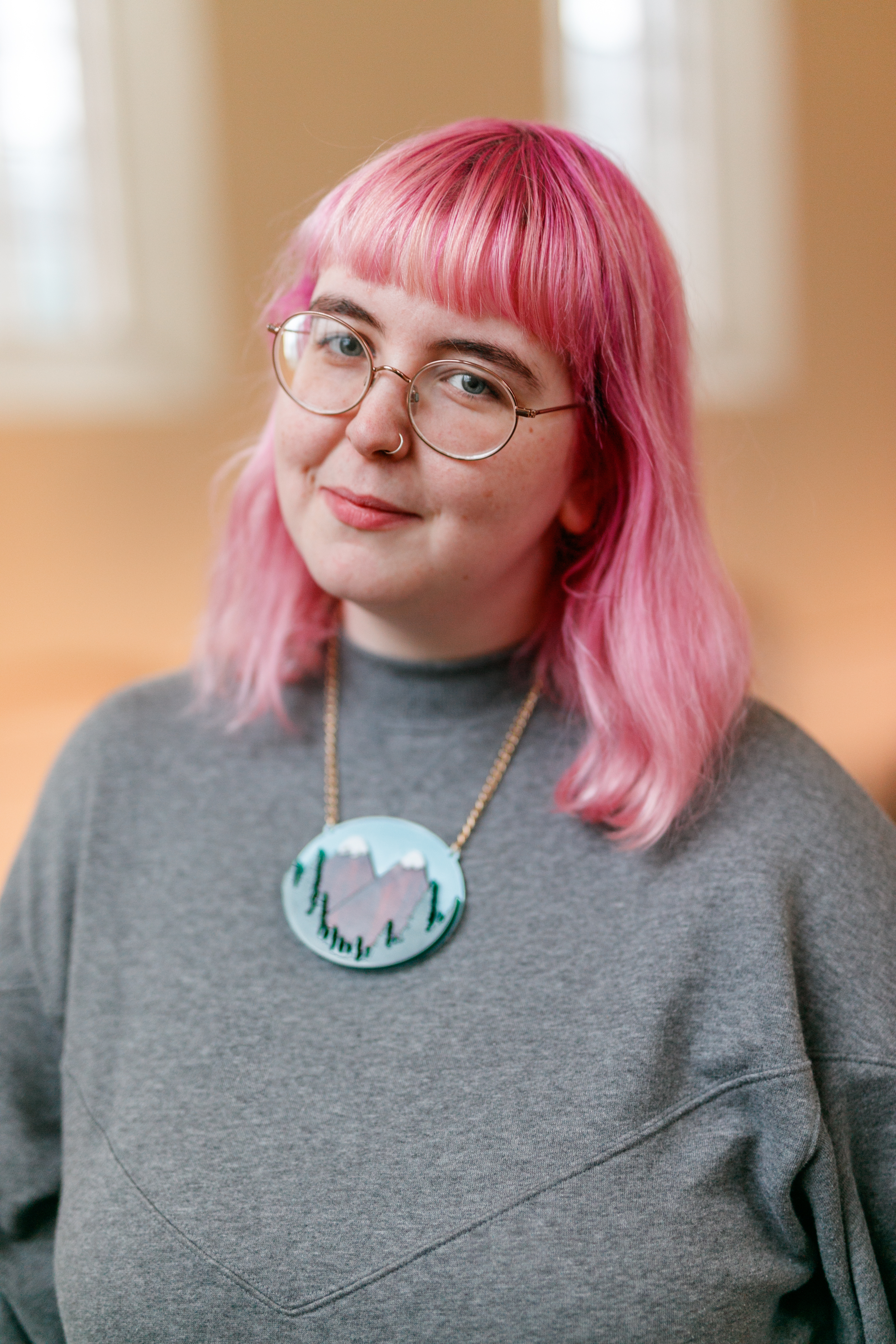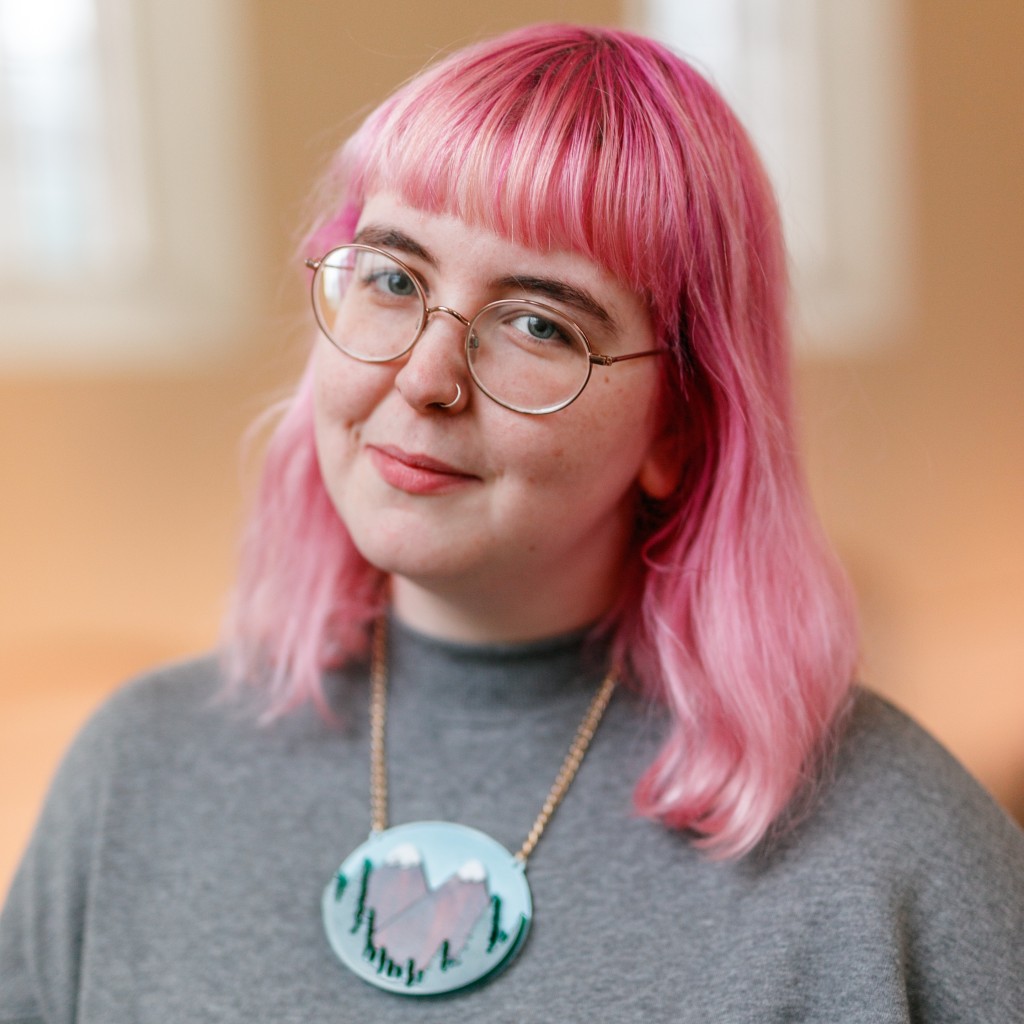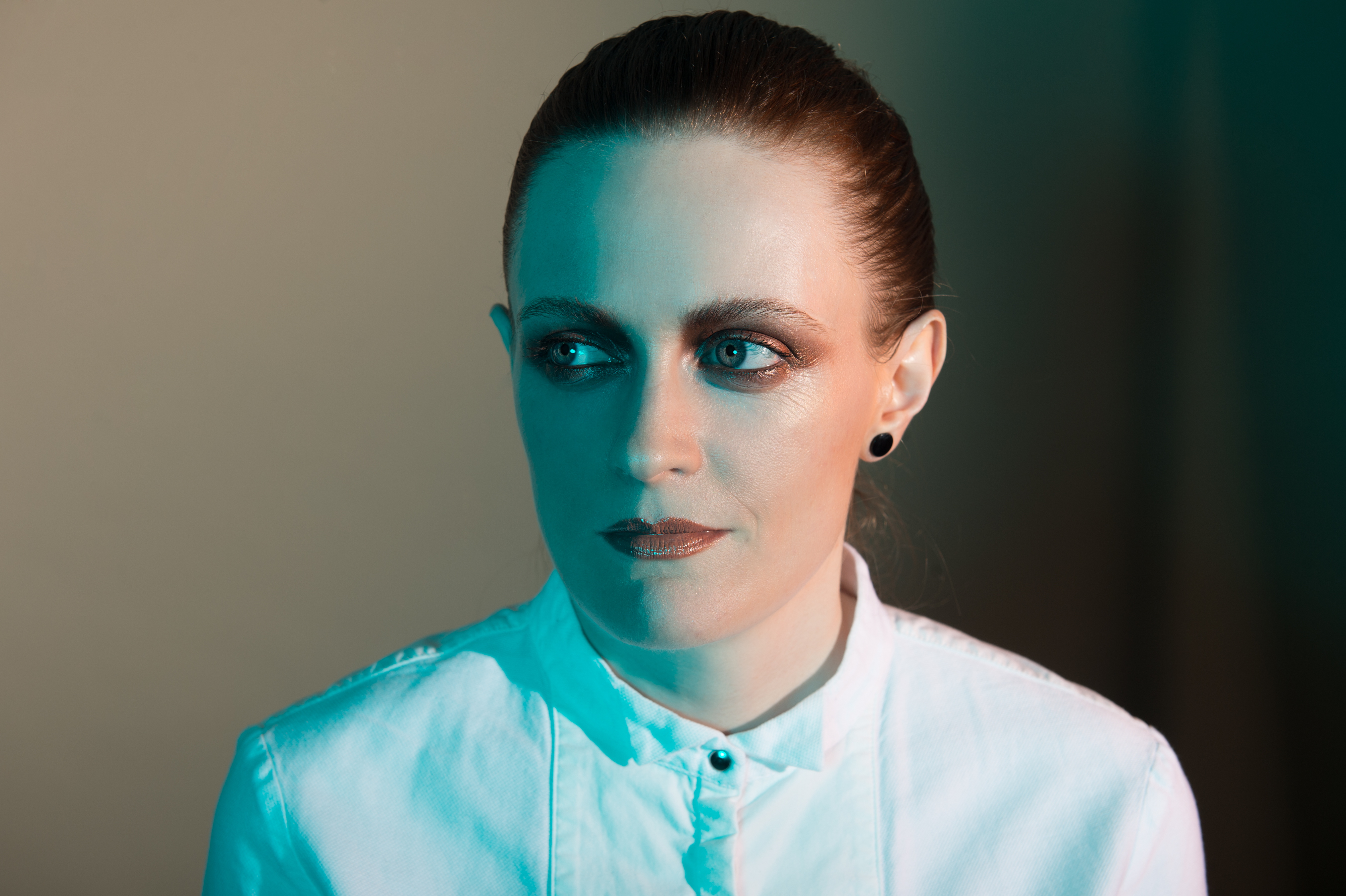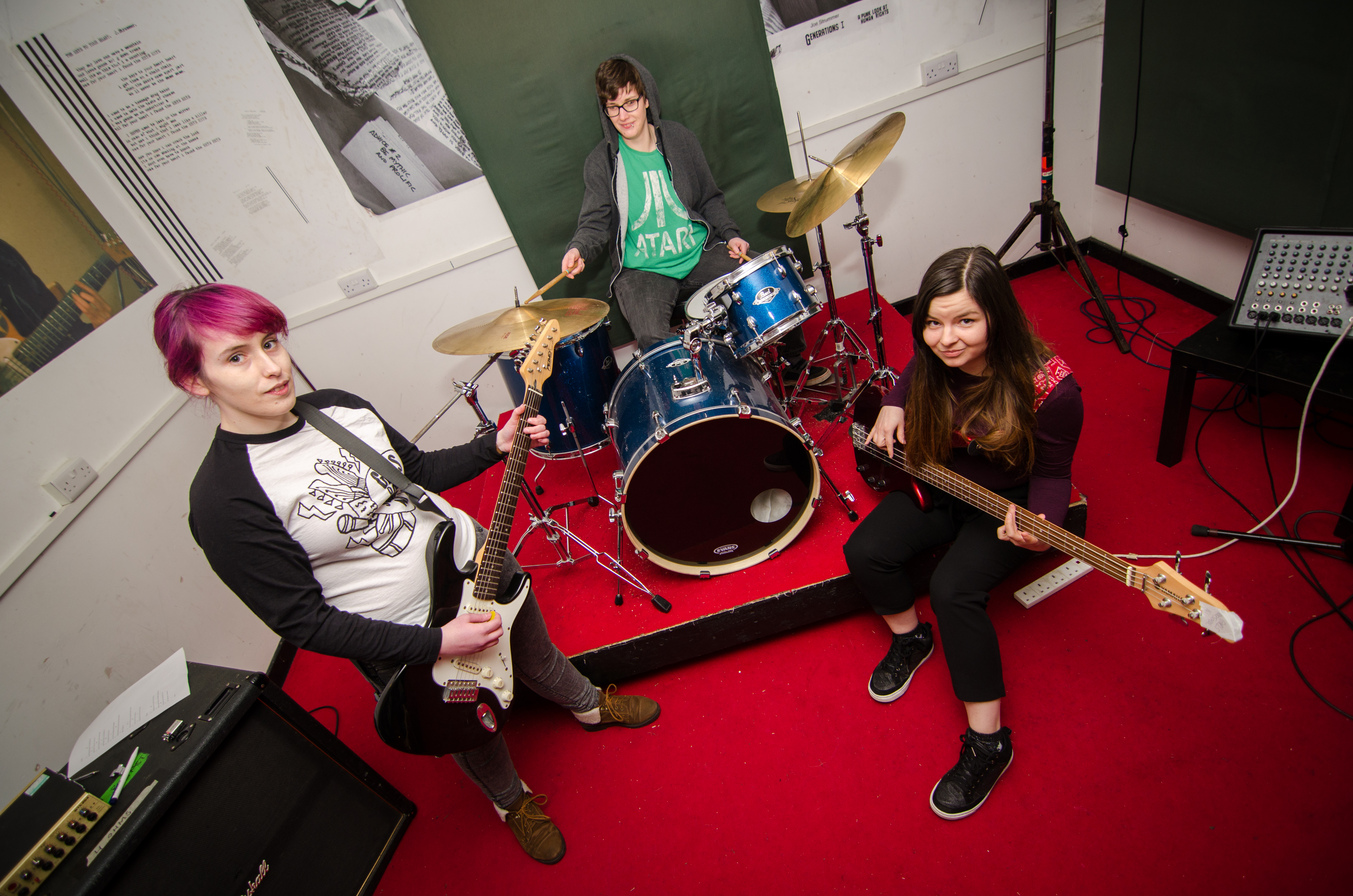Aisling O’Riordan is a musician, booker, promoter, radio host and is about to add tour manager for Brigid Mae Power to her already exceedingly impressive CV. Amidst all of these roles, Aisling also co-founded the Southern Hospitality Board and the revered annual Quarter Block Party festival which hosts a variety of music, spoken word and theatre throughout Cork city. A vital figure in the Irish music industry, O’Riordan spoke to Zara Hedderman about her beginnings, experiences and the importance of women encouraging each other within the business. Photo by Brid O’Donovan.
What was your introduction to the music industry and how did your career expand to so many facets of the business?
I started when I was sixteen or seventeen by putting on gigs with a few of my friends. I studied Music Management and Sound in Colaiste Stiofain Naofa and while I was there I met so many people that I work with today like Caoilin Sherlock (co-founder of both Southern Hospitality Board and Quarter Block Party). My peers in secondary school weren’t into music in the way that I was so when I went to college I was delighted to be surrounded by people that shared my love for it. I got deeper into the music scene in Cork from spending time with people in college. I was really fortunate that to get my first job in the music industry quickly after I finished that course.
I interned with Chloé Nagle who’s an amazing Sound Engineer that worked for The Pavilion in Cork. She was also one of my lecturers and she would bring me to assist her at gigs. Working with her introduced me to people from the venue and I became familiar with the behind the scenes workings that go into putting a gig on. I was offered a job there, which I was highly underqualified for, at the time, but I was so grateful for that opportunity. I worked there for about two and a half years, until it closed down in 2014.
During that time working with The Pavilion venue did you have one particular role?
Oh, god, what wasn’t my role there?! My official position was as their PR and Production Manager. I did a bit of everything, though, except bartending and security! I overlooked booking gigs, venue coordination, social media and looking after artists; making sure that they settled in. Because the team was small, I got to experience every side of the live show. It was really difficult because during The Pavilion’s last few years the venue struggled to stay open and sustain itself. It was an amazing job, I loved it so much and I still really miss it.
It was a great venue and it’s still missed in the city because it was a venue that took chances. It was a place where a lot of bands wanted to play their first gig. Again, I met so many musicians whilst working there that I still work with, like (now disbanded) Jet Setter, from Dublin. They were one of the last bands to play at The Pavilion in 2014 and Ross Hamer and Paddy Ormond from that band played at Quarter Block Party with their new project Postcard Versions at last months QBP. I got to work with some really amazing artists during that time; anyone from Roy Ayers to Franz Ferdinand.
How long after The Pavilion’s demise was Southern Hospitality Board born?
The night The Pavilion closed down was the same night that we started Southern Hospitality Board. There were three impending gigs, including a Girl Band show, that I had booked which had to go ahead. I remember talking to Stevie [from The Pavilion] and he explained what was happening to the venue, he offered to talk to the bands about cancelling the shows. Instinctively, I refused to entertain the idea of cancelling the shows so I spoke to Caoilin. We’d had so much experience playing music and djing together and he said “I’ll do that with you!” A few days passed and we organised the shows and they were a huge success. That was what lead us to do it on a full time basis to continue bringing great bands to Cork.
You’re involved in so many areas of the industry, both behind the scenes and on the stage. What led you to become involved in so many projects?
I think it’s because there’s always something that I want to do and try my hand at. I consciously had to slow myself down in 2017, so a few projects went on hold because I also had a day job in the Opera House. I finished up with the Opera House in August which coincided with me feeling completely burnt out. Whenever I’m talking to someone and they mention a project they’re working on I get excited and immediately want to become involved. By being so open to throw myself into different opportunities I’ve worked on amazing events and met wonderful people. But I do have to try stop myself, a little.
Is there one particular facet of work that is, for you, more gratifying than others?
I adore developing shows and running around with an event, that’s why I love Quarter Block Party. The preceding weeks are hard; you don’t eat a proper meal for three weeks and you’re exhausted once the festival ends but when the gigs are happening and you’re watching your favourite band play a song you love and you see the crowd’s reaction; that is what I love. Seeing the audience enjoying the band is so rewarding. But, as I said, you have put in a lot of work in the lead up to that moment. There’s endless emailing, making spreadsheets and other general admin work goes into creating that moment.
I’m extremely excited to be working as Brigid Mae Power’s tour manager for her UK shows this month. It’s an area that I’ve always wanted to explore more. I got a very brief taste of it last year with Rusangano Family in Toronto for 5 days, so that was a nice introduction to another side of the industry. I was incredibly honoured when Brigid approached me about managing her upcoming tour. I’ve been a fan of her music for years and Caoilin and I put on some shows for her in the past. It might sound strange, but it’s also a way that I’m looking forward to see the world; stopping of in a city, experience it and then quickly move on to another place.
It must be unusual working as a musician and and then also as a booker and promoter Do you you feel that having those different perspectives gives you a sort of advantage or does it frustrate you to see how certain things are done?
Yeah, absolutely. Playing music will always be what keeps me motivated to do all of the other things, which inherently comes from my constant want to play music. My band, Morning Veils are currently on pause because we’re all working on various projects and Roz is working on her PhD. The break is only momentary, we’ll make more music soon. Making music is a part of my life that will go on forever, so I always feel very assured that there’s no rush.
Initially, I played music more than doing the behind the scenes work, which is what I’ve been focused on recently. But that’s fine, also, because I enjoy it and it pays the rent! I do want to focus on making more music this year. At the moment, though, writing a song isn’t coming to me as naturally as writing an email does. I tend to let my inner critic be more harsh than it needs to be when I approach that side of my brain. I try to be patient and remind myself that I can always come back to it. I read an interview with Erykah Badu and she was asked why it had taken seven years to release new material and she responded with, “Well, I just didn’t have anything to say.” That’s how I feel about making my own music as well; I don’t know what I want to say at the moment and that may take time.
For now, I’m happy playing with other people. I’ve been part of an improvised project which experiments with female expression called Hex with Elaine Howley, Elaine Malone, Eilis Collins and Anna-Mieke Bishop. We’ve played four or five gigs, we had a set at Quarter Block Party which we performed with an improvised dancer which was really interesting. The thing I love most about playing with Hex is that as soon as we finish a show we’re all in fits of laughter from the exhilaration of jumping between instruments and following the flow of the music.
I noticed that before our set at QBP, I went into organisational mode; getting everyone ready to go on stage. It’s hard switching that off but having both perspectives is definitely an advantage because I know who to approach about certain things whether it’s sharing new Morning Veils’ material or other bands. It makes life a bit easier and I don’t have to blind email people as many people and publications as I would have without that insight.
Working in various facets of the music industry, have you noticed anything striking about being a woman in a male dominated realm?
It’s an interesting one, when I started out I didn’t notice certain behaviours were a reaction to my gender. Looking back now, I can blatantly see that they were wrong and wonder how I didn’t notice it at the time. I’m fortunate, now, because I don’t have to deal with nonsense. Everyone I work with is so supportive and I haven’t had anything horrible happen to me. I try not to dwell on it for too long because if you constantly thought about the awful things that have happened I wouldn’t get out of bed.
I suppose, as a woman in the music industry, I have to fight to be taken, not seriously, but for who I am. I’m a woman trying to put great events together and do my job. When you look at the scene in Ireland today, you’ll find so many women working behind the scenes. There’s Caroline Duke in Vicar Street, Julie Doolittle in the Workman’s and so many more. Since I started playing music again, I’ve found myself gravitating more towards women. It felt like a natural progression and working amongst the energy of women has been really good for me. I’ve always found that when women come together they become an unstoppable force.
You co-host Quiet Angry Women with Ruth Murphy on Dublin Digital Radio, a show in which you exclusively play and champion female musicians. Why did you choose this model for a show?
It all came about around this time last year, actually. I got in touch with Cathy (from DDR) about doing 24 Hours of Women’s Voices because I was really interested in the relationship between women and anger. I was fascinated by how women disguise their anger and can’t always express it because it comes off as shrill or too emotional. This really frustrated me because anger is an emotion that I have along with happiness, sadness and fear. These emotions reside in everyone. These thoughts coincided with my repeated listens to Solange’s A Seat At The Table. The content of that album is embroiled with anger and passion. But then, there are moments where she sings softly, sounding like Minnie Riperton. I loved the combination of gorgeous songs written by ferocious women.
That planted the seed, I wanted to have a radio show so that I could play all of these amazing female musicians. I asked Ruth if she’d be interested to get involved because she has a vast knowledge of music. It’s funny, she had also been thinking about women and anger when I approached her.
Quiet Angry Women is a show that aims to identify and appreciate the female spirit and voice. Doing a radio show makes me approach music differently. I’m constantly trying to find new songs to play which is great because I’m engaging with artists that I may not have come upon without the motivation of the show. Of course, we want to promote the work of Irish female artists on the show because that’s so important to us. One band that I really love at the moment are Powpig. They’re so cool and at ease with themselves in their live performances which is incredible. They’re going to be huge, I have no doubt about that.
Do you think that female musicians are well represented in Ireland?
Ireland is so small, but there is room for everyone. You see musicians like Loah and Dowry that push themselves and work extremely hard to claim their place within the industry. I do notice a shift of women becoming more visible. Maybe my senses are heightened because I have something to gain from being aware of great female musicians in Ireland because I can play their songs on the radio. In terms of gigs, however, I think this where there is a struggle. I don’t get to see as many women perform as much as I’d like to. But, again, if you look for something enough you will find it. If mainstream radio invested more in the independent and local Irish music scenes there would be greater opportunities to see more artists because both the audience and demand will be there for them to play.
Growing up, previous generations of women weren’t told that they could do anything they wanted. My generation, certainly, were told that we could do anything but up to a certain point. Recently, I was spending time with my godmother and her teenage daughters and I was struck how they were both so self-assured.
I’m witnessing women encouraging each other and supporting each other in their pursuits. That’s one of the most important changes, the more we see women motivating each other to work hard and chase their passion then that is where the example for future generations is cemented.
Aisling will be DJing in The Roundy on Saturday at 3pm for International Women’s Weekend in aid of the Rape Crisis Centre. Quiet Angry Women will have a special show for Dublin Digital Radio’s 24 Hours of Women’s Voices.







